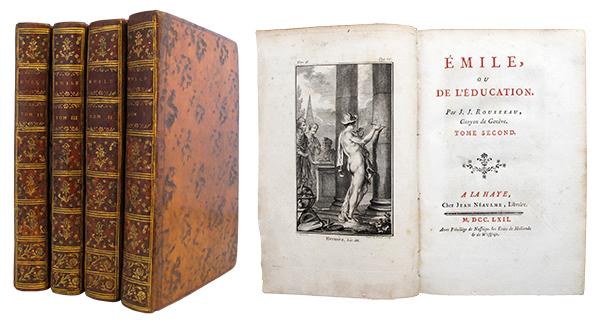

This stage plays the most prominent role in a child’s life.


With this he can develop his natural abilities and natural instincts. These activities are part of his education.

Instead, the child should be freed and allowed to do the activities according to his interest. It is unfair to spoil a child by giving him valuable things. To increase the physical and mental strength of the child, it is necessary to give him an open and clean environment, which he can only get by nature. The child is wicked only because he is weak. Rousseau said “All wickedness comes from weakness. Emile, or On Education, part-treatise, part-novel, outlines a process of education that would prevent humans from being corrupted by society and instead nurture their natural virtues and goodness.In child’s infancy, utmost care should be taken to develop his physical and mental strength. In 1762 both On the Social Contract (his most famous work) and Emile (Rousseau called it one of his three principal works) were published. Rousseau’s literary breakthrough came in 1750 with the publication of his winning entry in an essay competition organized by the Academy of Dijon on the theme, “Whether the progress of the sciences and of letters has tended to corrupt or to elevate morals?” In his response, Rousseau challenged the Enlightenment with a spirited return to the Greeks and Romans: “What will become of virtue if riches are to be acquired at any cost? The politicians of the ancient world spoke constantly of morals and virtue ours speak of nothing but commerce and money.” This was a clarion call that would lead to Romanticism. There at the age of sixteen he met Françoise-Louise de Warens, a woman who would become his benefactor and mistress, and under whose influence he would (temporarily) become a Catholic. Rousseau eventually left Geneva in 1728, fleeing to adjoining Savoy. No other philosopher’s biography is perhaps as well-known as that of Jean-Jacques Rousseau (1712-1778), who made his own life the subject of a number of his writings, including his great autobiographical work, the Confessions. Born in Calvinist Geneva, Rousseau was raised by his father, a clockmaker, who cared for learning and had Rousseau read classical Greek and Roman literature.


 0 kommentar(er)
0 kommentar(er)
